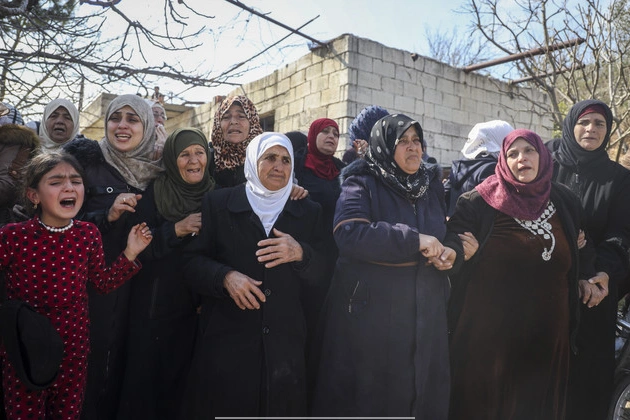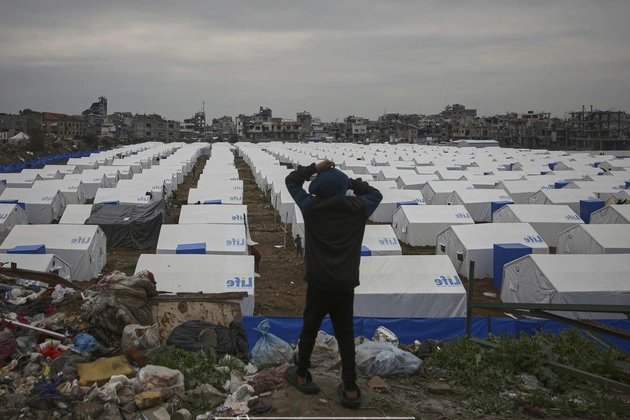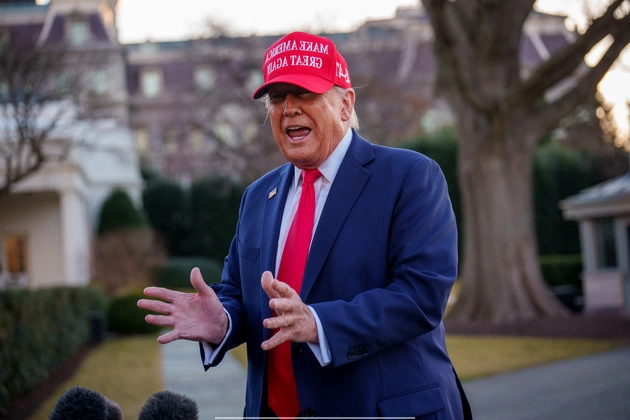
Israeli Prime Minister Benjamin Netanyahu has declared that Israeli troops will continue to occupy a buffer zone on the Syrian border, a strategic area seized following the ouster of Syrian President Bashar Assad. Netanyahu emphasized that the presence of Israeli forces in this region will persist until a new arrangement is established to safeguard Israel’s security.
Strategic Location on Mount Hermon
Netanyahu delivered this announcement from the summit of Mount Hermon, situated inside Syria and approximately 10 kilometers away from the Israel-held Golan Heights. This location holds significant importance for Israel’s security, with Netanyahu highlighting its heightened relevance in light of recent events.
Following Assad’s removal by rebels, Israel took control of a portion of southern Syria adjacent to the Israeli-annexed Golan Heights. This move has drawn criticism, with detractors accusing Israel of breaching a 1974 ceasefire agreement and potentially exploiting the Syrian turmoil to expand its territory.
Persistent Security Measures
Netanyahu affirmed the intention to maintain Israeli presence in the buffer zone until a more sustainable security arrangement is established. Accompanied by Defense Minister Israel Katz, Netanyahu visited the buffer zone to oversee the fortification and establishment of Israeli positions, preparing for an extended stay in the area.
While Israeli military presence has advanced into the buffer zone, plans do not currently include the evacuation of Syrian residents from villages within this demilitarized area. The buffer zone, delineated by the U.N. after the 1973 Mideast war, had been monitored by a U.N. peacekeeping force comprising around 1,100 troops.
International Response and Humanitarian Efforts
The United Nations has criticized the incursion of Israeli forces into the buffer zone, asserting that any form of occupation violates the established agreement for this region. Meanwhile, with the leadership transition in Syria, there are commitments to enhance humanitarian support for millions in need of aid.
Efforts to scale up humanitarian assistance are underway, with pledges from insurgent leaders and the caretaker government in Syria to facilitate the movement of aid from neighboring countries. This development signals a potential shift in the humanitarian landscape of war-torn Syria.
Political Dynamics and Diplomatic Realignments
As political transitions unfold in Syria, various diplomatic engagements are taking place. Notable interactions include German officials meeting with rebel leaders to discuss Syria’s future political landscape and expectations regarding the protection of vulnerable groups.
Furthermore, proposals for demilitarization and security realignment are being put forward, particularly in regions like Kobani in northern Syria, amidst ongoing conflicts and alliances in the Syrian theater.
Humanitarian Concerns and Transitional Justice
Recent discoveries of mass graves in Syria have shed light on past atrocities, emphasizing the need for accountability and transitional justice. Families of the missing are seeking closure and answers, underscoring the importance of addressing human rights violations and ensuring a path to reconciliation.
Efforts to account for missing persons, establish communication channels for reporting, and unveil the truth behind past atrocities are crucial steps in the journey towards healing and rebuilding Syria’s fractured society.
International Relations and Reopenings
Diplomatic relations are undergoing shifts, with embassies reopening and countries reaffirming their positions on Syria. Qatar’s official reopening of its embassy after a 13-year hiatus reflects a diplomatic recalibration in the region, signaling renewed engagement with Syria’s evolving political landscape.
Symbolic gestures, such as the raising of flags and diplomatic engagements, symbolize solidarity with the Syrian people during these transformative times. As international actors navigate the complexities of Syria’s post-conflict scenario, diplomatic dialogues and humanitarian initiatives play a pivotal role in shaping the country’s future.















